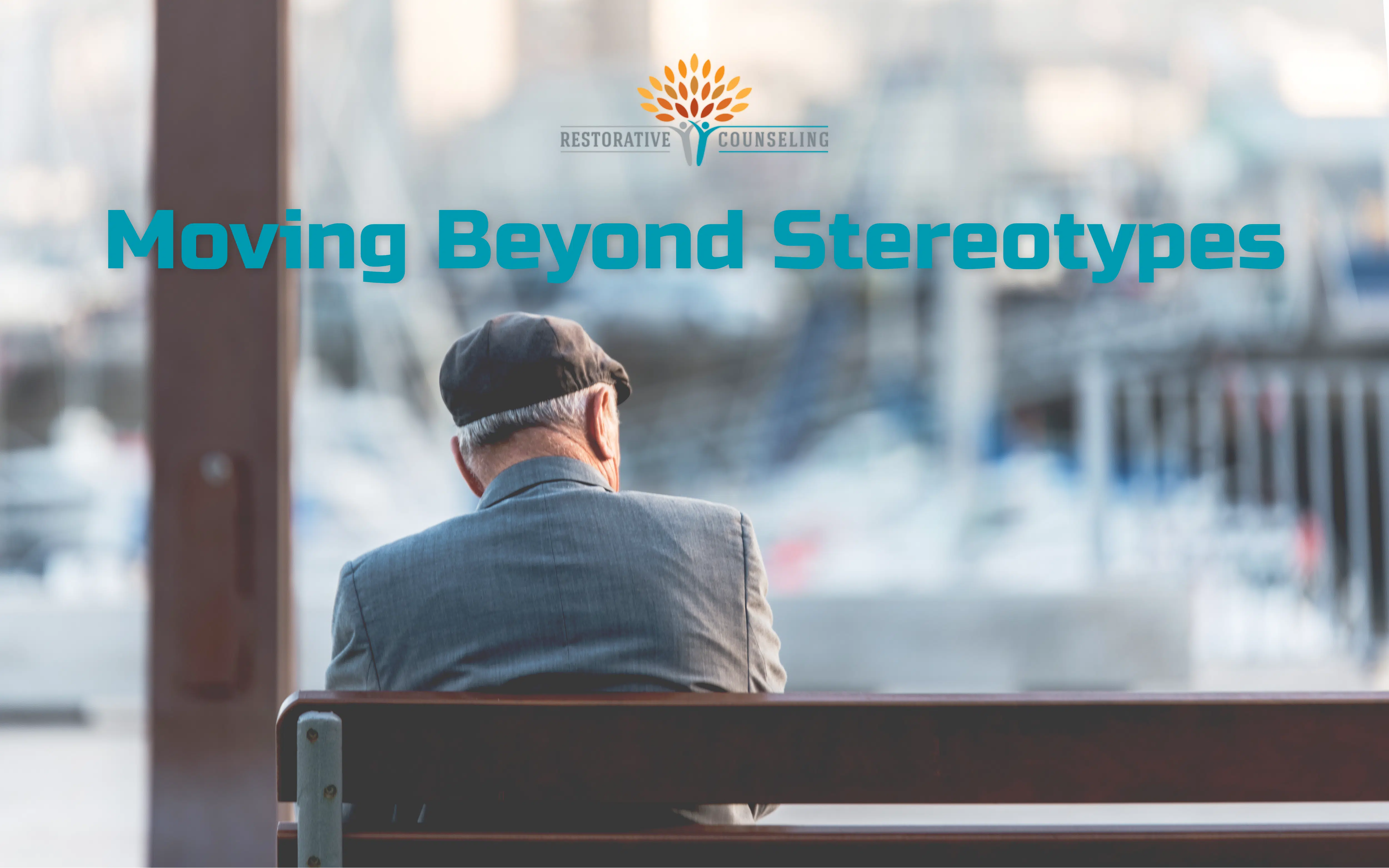Written by Jordan Meehan, LCSW
Moving beyond stereotypes
Picture this scenario of age stereotypes
You land that elusive interview for an entry-level position with your dream company. During the past 7 years, you poured your heart and soul into college, graduate school, volunteer work, and an unpaid internship in order to prepare for this moment.
On the day of your interview, you show up early, having done all of your research and preparations in order to leave a good impression. When the HR manager introduces himself and begins the interview, he cuts you off and notes how “young” you look. He then proceeds to question your lack of paid job roles and expresses that the company is looking to hire someone “more seasoned.” The HR manager gives you the opportunity to talk about yourself and your experience, and then he ends the interview.
Wait, what just happened?
At this point, you are probably feeling frustrated and confused. You question why an entry-level job would require someone “more seasoned.” Unbeknownst to you, the HR manager’s unfair judgment about your age and youth cost you a fair shot at the job. Read further about conflict & communication within the workplace.
Understanding age bias and stereotypes
What is Age Bias?
The HR manager’s behavior is most likely the result of a personal bias and stereotypes about your age. According to the Merriam-Webster dictionary, a bias is “a personal and sometimes unreasoned judgment.” When a person holds an age bias, they tend to have generalized beliefs about how members of a particular age group will behave. Age biases intensify the negative stigma surrounding each age group. Every human being has biases. The challenge is recognizing those biases and working to correct them in order to reduce the stigma about age.
Generational Stereotypes
Every generation deals with age biases and the stigma that comes with being unjustly stereotyped. Age stereotyping occurs as a result of society generalizing the experiences of a few and applying those experiences on a broader scale.
Baby Boomer stereotypes
There are prevalent stereotypes of Baby boomers that indicate they are set in their ways, close-minded and that they are bad with technology. These stereotypes are harmful in many social institutions because it can lead younger generations to write off Baby Boomers as less “with it” therefore leaving them out of many important discussions and processes.
Gen X stereotypes
Stereotypes about Gen X say that this generation is cynical and bleak. It’s a common Gen X stereotype that this cohort gained independence at an early age. Often, they are referenced when people say things like “when I was a kid we played outside all day and didn’t come home until dark” (usually when speaking to younger generations). It’s important to note, though, that the independence that Gen X gained during their formative years has helped them to promote the independence and self-sufficiency that can help other generations establish themselves.
Millennial stereotypes
Millennials are frequently thought of as lazy, entitled, inexperienced, sensitive, easily offended, unmotivated, and disrespectful. Older adults receive labels such as “stuck in their ways,” ignorant, too experienced, judgmental, and close-minded.
There are individuals within each generation that possess some of these qualities, but they are the exception rather than the rule amongst their age groups. In fact, most millennials are motivated, hard-working, active in their pursuits, and aware of how they need to improve. Similarly, many older adults are open to new experiences, willing to learn, self-aware, and compassionate.
Gen Z stereotypes
Many stereotypes about Gen Z include the idea that they’re constantly on the internet. Although Gen Z was raised with the internet and a large technological presence this proves that they can be naturally technologically-savvy and aware. Since the world is turning more and more towards technology, Gen Z reflects that norm.
Another stereotype about Gen Z is that they have more mental health issues than any other generation. However, because Gen Z is the generation that is commonly known to be most accepting of therapy, this could just be due to the fact that they are aware that seeking counseling is a viable and sustainable option. Therefore increasing the amount of people in therapy in general.
The Impact of Age Stereotypes
The stigma of a label based solely on someone’s age can have a lasting impact on a person’s mental and physical health.
Millennials often struggle with anxiety, depression, and the fear of never being good enough. Older adults may experience increased rates of depression, isolation, loss of opportunities, and poor treatment.
So the question becomes, what is the purpose of labeling individuals based on just their age? Stereotyping others only serves to increase stigma in order to justify separation between groups. Negative labeling fails to recognize the strengths of each generation and the unique individuals of all ages.
Steps to help reduce age stereotyping and stigma
Age biases and stereotypes will never simply go away. Members of each generation have a role in reducing stigma and unfair labeling. Meaningful change will require self-reflection, effort, and even a little vulnerability.
In order to combat stereotyping based on age, follow these steps to make a conscious effort to address your personal biases:
- Admit that every person has biases, including you.
- Identify your personal biases, and learn to recognize when they impact your thoughts and behaviors.
- Challenge your biases about other age groups and look for evidence to prove yourself wrong.
- Expose yourself to new experiences with people from different age groups.
- Make the choice to act in a way that celebrates the strengths of all age groups.
Have questions about age stereotypes or understanding how to break personal biases? Contact Restorative Counseling to get today

Hi, I’m Jordan!
I partner with teens and adults to treat concerns related to trauma, anxiety, and relationships utilizing CBT, ACT, and EMDR approaches. Read more about me.
Follow Restorative Counseling
Sign up for our newsletter

